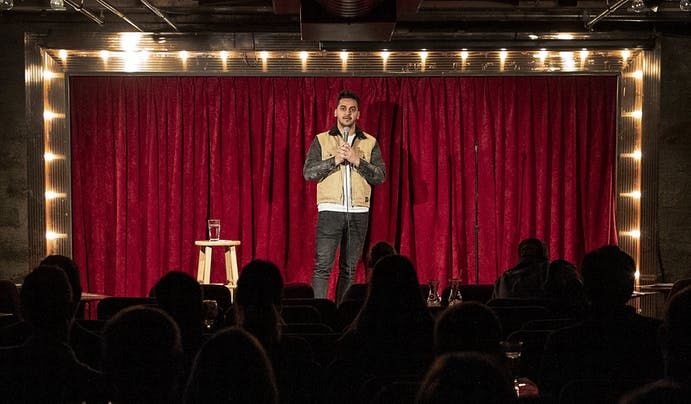
Much like Jewish comedians have done in the past, a new generation of Muslim comedians are embracing the topics of their faith and using it for fodder in their material. At a recent open-mic night at Acme Comedy Company, three of the 22 acts were Muslim, including Ahmed Khalaf whose family immigrated to Minnesota from Somalia when he was a kid. “I don’t have stories about spending Christmas with a crazy uncle,” he quips. “My thing is Ramadan. That’s an insane holiday. It’s really just a diet.”
Ali Sultan moved to the Twin Cities from Yemen when he was 15. He’s attracting national attention with routines that range from a schoolteacher making him squirm in the wake of the Sept. 11 attacks to how he accidentally ate bacon, pondering: “Why am I allowed four wives but not this slice of deliciousness?”
In Ramy Youssef’s groundbreaking self-titled TV series, “Ramy,” Youssef represents a not so fully realized Millennial Muslim man, warts and all. “I just want to show that we’re human. This is not a How-to-Be-a-Muslim guide. This is not outtakes from the Qur’an. This is someone who is struggling and not being a good Muslim…. We are so underrepresented, when people do see us, we’re constantly trying to apologize or over-prove that we’re good.”
These freshman class of comics are quite different from the previous generation of Muslim comedians — Kumail Nanjiani, Aziz Ansari and Dave Chappelle. These guys rarely talk about their faith in their acts. Dave Chapelle, who converted to Islam in the late ’90s, explains in a 2005 Time magazine interview, “I don’t normally talk about my religion publicly because I don’t want people to associate me and my flaws with this beautiful thing.”
Ali Sultan points out that discussing faith is not the easiest path for this new generation of comics. “There can be pressure, like I’m letting them down. But I can’t worry about representing everyone. I can only represent myself.”



